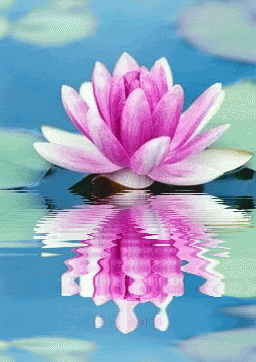
by Ajahn Sumedho
We can reflect on the way it is—on this tropical kind of weather, for example. In the attitude of acceptance we can allow ourselves to be receptive to life rather than try to control it, run away from, or resist it. This receptivity contrasts resistance. Culturally, we tend to be conditioned into resisting things. There is a fear of being open and receptive, as if by doing so we shall allow something to take us over. We feel we have to develop some kind of protection in order to keep ourselves from being annihilated or taken advantage of; it is a kind of paranoia of the mind. We may also have the attitude of needing to resist evil, of having to kill the devil and destroy the evil forces.
The Buddhist attitude is one of loving-kindness (metta), of open acceptance of everything as it is. If we take loving-kindness to its ultimate, all conditioned phenomena are accepted for what they are. That doesn’t mean all things are approved of; they are simply accepted. Everything has to be the way it is in the moment. You can’t say, ‘I don’t want the weather to be like this,’ or, ‘I don’t want things to be this way.’ If you do, you are not accepting the way it is and are creating suffering around something that you don’t like or don’t want.
You can also have loving-kindness for your dislike of the way it is, so you are not even criticising yourself for being critical. Feeling despair and self-aversion for being critical or selfish is another trap of the mind. Even if you are sitting here hating yourself, thinking of yourself as selfish and critical and not a very nice person, you can have metta for that; you can have loving-kindness for the critical mind. Patient acceptance is nonaversion to everything that is happening now.
Everything is accepted, nothing left out. There are no loose ends or exceptions.
I was giving a talk the other day about how to change one’s attitude from negative to positive, and somebody took umbrage at that. This person gets very annoyed if I imply that one should be thinking positively, like in the power of positive thought. But how does he know that I mean it in the way that he takes it? And what about resistance and acceptance? This is resistance. To have metta for resistance is an attitude of mind, not a position to take. It is not that we should grasp the idea of having loving-kindness for everything, because then we will feel we are never loving enough. There may always be something or someone in our lives for whom you can’t generate any positive feeling. Their name comes up and you just go into a rage. You think, ‘I should be able to have metta for this person,’ and, ‘I should be able to forgive,’ but when that person’s name comes into consciousness you just can’t do it; it doesn’t work. You simply can’t say, ‘May you be well,’ without feeling bitter and hypocritical. Grudgingly saying, ‘May you be well,’ is the best you can do.
 Sometimes metta is presented as a kind of ‘think pink’ idea, where we are just saying very nice things and wishing everybody well and it is all very sweet and nice, but underneath there might be a kind of volcano of rage and resentment.
Sometimes metta is presented as a kind of ‘think pink’ idea, where we are just saying very nice things and wishing everybody well and it is all very sweet and nice, but underneath there might be a kind of volcano of rage and resentment.
Idealism is a mental function. You can think of the highest ideals about eternal love, loving all sentient beings. Unconditioned love is an ideal. Intellectually we can create ideals about how things should be if they were at their best, and that is a function of the mind. We might then get inspired by these ideals. And if we talk about love and forgiveness and loving-kindness, tears can come into our eyes—the joy of being so high-minded. And then, after spreading loving-kindness throughout the universe, maybe something happens—somebody slams the door, for example—and suddenly we are angry. Now we can become confused because anger is not part of the ideal. Nevertheless, anger and rage are emotions that we all experience, so then we can have a war going on between our ideals and our emotions.
A woman came to me once—a well-educated woman—and she was in a very emotional state. She started crying and said, ‘I’m so sorry, I know I’m being foolish. I’m just being so foolish and stupid.’ Then she cried again and said, ‘I know this is ridiculous, but I can’t help it.’ Her intellect didn’t approve of this at all; the intellect was being hard line: You shouldn’t be crying. You shouldn’t be doing that, just weeping and soft. You’re losing control. You’re disgracing yourself. One can be very hard and tyrannical on the intellectual plane: If I were a really together woman and got my act together, I wouldn’t be weeping and crying like this; I’d have control of myself. But look at me! I’m a mass of jelly in front of this monk. He must think I’m just another one of those emotional women. We can be very cruel to ourselves, very judgmental: I shouldn’t be like this. I shouldn’t feel these kinds of feelings. If I were a decent person I would never have done the things I’ve done. Inner tyrants are relentlessly hard, cruel and judgmental. That is the intellectual mind thinking in terms of how things should be. But ideals don’t feel anything. When you attach to an ideal, you don’t feel life at that moment. You can be very insensitive to somebody who is having problems because you are attached to ideals. Even the ideal of sensitivity is not sensitive. We may say we must be sensitive to each other, grasp that as an ideal and not be sensitive at all; we can simply shut ourselves off by attaching to the ideal of sensitivity.
In reflective awareness, however, we are saying sensitivity is like this; it feels like this. This is a sense realm; it isn’t an ideal realm, a utopia. This realm has everything—the best, the worst, and all gradations between, from refined subtleties of beauty, aesthetics and loveliness to the most hideous, gross, totally disgusting conditions. In terms of reflective awareness, then, we are not judging, we are just noticing that life is like this. It is not what it should be according to an ideal, but this is the way it is.
The habits that we have acquired, the emotional habits, the way we react to praise and blame, success and failure, sickness and health, prosperity, depression and elation and all these things, are not rational; they are not ideal. The intellect is rational, but emotions are like this. You can be blubbering on the floor, a mass of jelly. That is not being reasonable or rational, is it? So then your rational mind can be critical and say, You shouldn’t be like this. It can judge according to ideals.
 My own experience of life is that when I reached the age of thirty I was horrified to discover that, emotionally, I was still very immature. I thought thirty was old, my youth had gone, but emotionally I felt very childish. This was a horrible realisation. Physically I had matured, intellectually I had developed and could put on an act of maturity. A friend asked me once, ‘Why did you become a monk?’ I told him it was because I had been suffering so much. He said, ‘You suffered?’ I said, ‘Yeah, I was suffering all the time.’ He said, ‘You never looked like you were suffering. You always looked so happy.’ ‘Did I? I didn’t know I looked happy because I wasn’t.’ This appearance of being happy was probably my persona, how I presented myself. He was surprised that I had suffered, but I thought everybody could see it; I thought it was as plain as the nose on my face.
My own experience of life is that when I reached the age of thirty I was horrified to discover that, emotionally, I was still very immature. I thought thirty was old, my youth had gone, but emotionally I felt very childish. This was a horrible realisation. Physically I had matured, intellectually I had developed and could put on an act of maturity. A friend asked me once, ‘Why did you become a monk?’ I told him it was because I had been suffering so much. He said, ‘You suffered?’ I said, ‘Yeah, I was suffering all the time.’ He said, ‘You never looked like you were suffering. You always looked so happy.’ ‘Did I? I didn’t know I looked happy because I wasn’t.’ This appearance of being happy was probably my persona, how I presented myself. He was surprised that I had suffered, but I thought everybody could see it; I thought it was as plain as the nose on my face.
I could act out a role at the appropriate time. In the quiet of my room, however, it wasn’t like that. I wasn’t mature and cool, a man who had his life together; I was frightened and feeling insecure, disappointed with life, and had childish reactions to things. So what do you do with yourself in such a situation? How can you change? The inner tyrant said, ‘Well, just grow up.’ And I tried that; I tried to act as though I was grown up. It wasn’t that I went around throwing temper tantrums in front of people, but sometimes the tantrums were going on inside. I could be smiling, smoking a cigarette and drinking a cocktail, but inside I was anything but cool and calm.
Meditation was the light at the end of the tunnel, the only hope I had of growing up, of really maturing and taking that to the ultimate of enlightenment, to complete liberation. Why settle for maturity in a childish society? Society is pretty childish anyway, at least the one in which I had lived. People were vain, and in those days nobody seemed very interested in spiritual development. If you talked about such things they looked at you as though you had said something inappropriate, or were an idiot. The people I knew were only interested in appearances, fashion, political movements, in trying to make the world better and so forth, but on the level of spiritual development, nobody seemed to have even a slight inclination.
While training and living these past thirty-three years as a monk, I have had the opportunity of getting to the root of this issue. This way of intuitive awareness, emptiness, can resolve our emotional habits. There is a way of freeing ourselves from those habitual reactions, and it is the only way I have found that works. Endlessly discussing them and thinking about them just seems to lead one in circles. What we need is an escape from the conditioned realm. Awareness opens the gate to the deathless, opens the mind and heart to the deathless reality, to the Dhamma, to where emotional habits can be liberated from the mind. Otherwise, as Ajahn Sucitto likes to say, ‘It is just like rearranging the deckchairs on the Titanic.’ Trying to change conditions is like rearranging your furniture. You are tired of the sofa on that side of the room so you put it on this side. That is the best you can do. If you begin to see the way out of the whole thing, however, you see that mindfulness is the path to the deathless.
The intellect can easily judge emotions. We can condemn ourselves for having them, feeling despair and hopelessness with ourselves because we seem to regurgitate the same stuff over and over again. The metta then is towards the intellect, the inner tyrant, the self-criticism. Metta is the willingness to accept the way it is without any condition. It is not like a deal you make: ‘I’ll accept you if you change. I will marry you if you promise to change your ways and do what I want.’ That is some people’s way of relating to each other. ‘I can only love you when you act in the right way. If you conduct yourself appropriately, I will love you. But if you act in a bad way and don’t respect me, then I won’t love you any more.’ That is conditioned love, isn’t it? Unconditioned love, which is metta, does not make any conditions. No matter how nasty it is, I still love you. No matter how horrible you become, I still love you. There is nothing that can destroy my love for you. You can be the most maniacal, horrible, nasty human being in the whole world, you can become a demon, but nothing can diminish or taint that unconditioned love—now you are probably thinking of ways to test me. Continue reading →




















